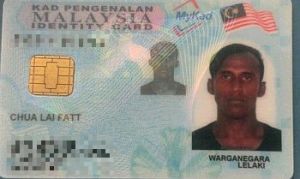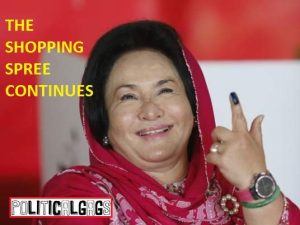What feeds the thirst for revenge?
I refer to two news articles (5 August) I find particularly alarming, namely “Why question me for my son’s action, asks sex blogger’s mom”, and “Student ostracised after mother’s exposé”.
The issue (as many have identified) is of racism, unfair treatment, and questionable practices of authority. However, not many have pointed out one crucial underlying aspect – that many Malaysians seem to feel the need for revenge for beliefs they deem belittled.
What makes people vengeful?
There are many psychological explanations for revenge. One study by social psychologist Ian McKee illustrates the link between right-wing authoritarianism and social dominance and tendencies for vengeance. The vengeful, in short, are those who need power, authority and status in their lives.
I’m sure we can all think of plenty of examples; otherwise, a brief glance through the news easily provides many anecdotes that demonstrate the theory beautifully.
The problem is compounded when those who have tremendous influence also come from a relatively collectivistic culture, like Malaysia. According to Michele Gelfand and her colleagues, in such cultures, revenge is fuelled by shame, and is significantly more contagious than in individualistic perceptions. In other words, losing “face” (on behalf of the group) is reason enough for others to want to ensure that an individual gets what he or she deserves.
The “detergen jenama Pakatan/BN” incident not too long ago is testament to this theory – the person supporting the BN agenda was very unfortunately a Chinese and is seen as a disgrace to their own race. Suffice to say, threats of violence, rape, burning of houses ensued.
With that knowledge, we can now make sense of what’s driving the vengeful tendencies of a particular Malay NGO group we’re all so familiar with. In which case, the question we need to ask is an ethical question – “What good does vengeance do?”
What good does vengeance do?
Some psychologists argue that it is an evolutionary way to ensure that ‘normalcy’ is maintained – we can’t have sexually deviant couples publicly airing their lewd shenanigans or Muslim dog trainers ruining our Asian society built on moral values of tradition, can we?
Secondly, revenge seems like a fantastic cathartic method to relieve pent up emotions of rage – especially when you know you won’t get caught. It makes you feel better about personally contributing to the restoration of the group’s pride. Nothing like some rage-fuelled action to make one feel accomplished.
The funny thing is, the mechanism behind revenge is strange, if not paradoxical. It is when we manage to take revenge (engaging in cyber bullying, threatening families, etc.) that we never get proper closure, because we begin to see the issue and our actions as crucially personal.
And when we don’t take revenge, we instead manage to take the issue lightly enough that we move on with life. Gandhi was far ahead of his time when he realised that people are more powerful when they don’t think of retaliating against threats.
No action, talk only…. And please, no action against families, relatives and friends
In short, there really is no good reason to take revenge on another. No action, talk only (colloquially known as Nato) seems to be the best policy – although threats, whether anonymous through online sites or letters to the house aren’t simply “Talk only”, because of the potential harm to the threatened. As a counsellor friend of mine would say – only “attack” the issue, but never the person.
More disgusting is the need to ostracise the relatives of the person targeted. This is in no way justifiable: No one should be made to suffer the “sins” (a highly questionable term in itself) of others in the first place. The act itself carries shades of the ancient practice of executing the condemned person’s entire family tree alongside them. Is this mentality to be the legacy of collectivistic culture? Kill one, kill all?
I do not believe that it should be so. In the same way that no Malay, Chinese and Indian should be stereotyped and discriminated on the basis of their skin colour, no individual should be ostracised, especially because of a purely coincidental link to a certain person.
The cited studies are part of the report “Monitor on Psychology (June, 2009)”, and can be found here.





